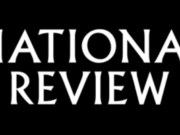This piece originally appeared in Washington Examiner on December 12, 2018.
One welcome casualty of the #MeToo movement is the practice of using taxpayer funds to settle sexual harassment suits against members of Congress. Over the last two decades, the Congressional Office of Compliance has paid out some $17 million to settle sex harassment suits against lawmakers, but Congress is on the verge of passing legislation to end that practice.
But if the government is no longer going to pay these settlements, who is? If the idea is to hold members accountable, as lead Senate sponsor Amy Klobuchar, D-Minn., says, then we would expect members to pay out of their own pockets. Seems simple enough.
Not so fast. Almost certainly one reason a member would pay a settlement without a court judgement against him would be to keep the story out of the news, so as to prevent it from negatively affecting his re-election prospects. But if he does so, he may find his local U.S. attorney has something to say about it. For, as anyone with the most remote interest in politics knows, the U.S. attorney for the Southern District of New York recently reached a plea bargain with President Trump’s former attorney, Michael Cohen, charging him with felony campaign finance violations, and the hot take is that Cohen’s plea implicates the president in a felony, too. The alleged crime? Cohen, at Trump’s direction, arranged payments from private funds to two women with whom he had had affairs a decade or more before, in order to keep their stories out of the news before the 2016 election.
According to the U.S. attorney, payments to these women are campaign expenditures, because they were intended, at least in part, to influence the 2016 election. So presumably, under the U.S. attorney’s theory of the law, any amounts paid by members of Congress to settle sex harassment claims would similarly be paid with campaign funds, and be reported publicly to the Federal Election Commission, most likely as “legal fees.”
This theory of the law would transform campaign finance donations from money used only to pay for a campaign to persuade the public, to a sort of all-purpose slush fund the candidate can use to cover up bad behavior. This is the exact outcome the federal campaign finance law was designed to prevent.
The Federal Election Campaign Act, which governs all this, has a remedy. It provides that campaign expenses do not include obligations that would exist “irrespective of” the campaign. Paying hush money, or settling lawsuits, is not a core element of a campaign for office.
It would be interesting to ask Klobuchar, as the lead sponsor of this legislation, whether she believes that paying hush money to old lovers, or to settle sex harassment suits, is a valid use of campaign funds. Likely, she would feel the way most people do. Allowing donors to ply candidates with money that benefits them personally, rather than politically, creates a significant avenue for corruption.
If only the U.S. attorney agreed.














